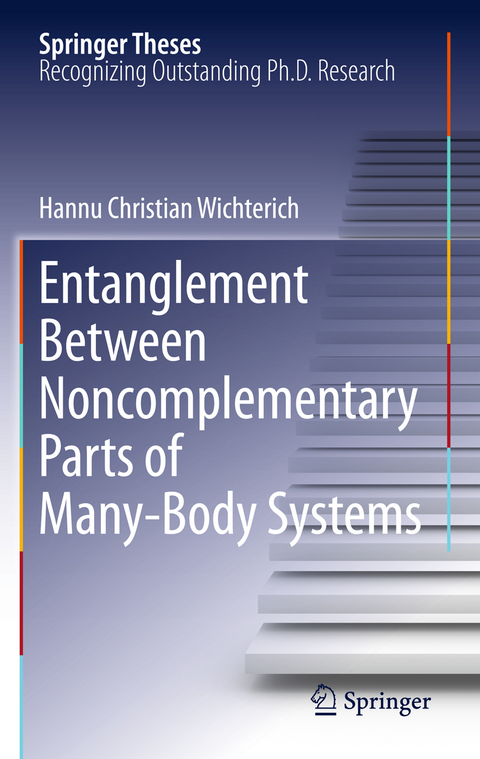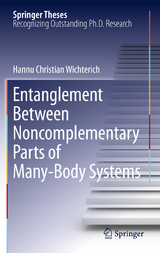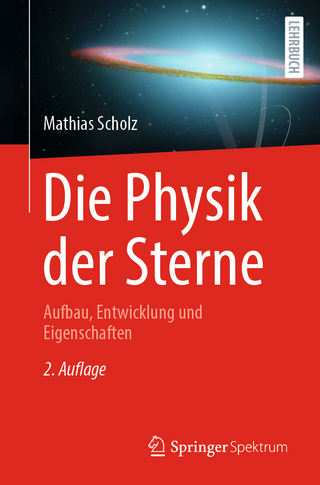Entanglement Between Noncomplementary Parts of Many-Body Systems
Springer Berlin (Verlag)
978-3-642-19341-5 (ISBN)
Introduction.- Exploiting Quench Dynamics in Spin Chains for Distant Entanglement and Quantum Communication.- Extraction of Pure Entangled States from Many-Body Systems by Distant Local Projections.- Scaling of Negativity of Separating Blocks in Spin Chains and Critically.-Universality of the Negativity in the Lipkin-Mechkov-Glick Model.- Conclusions and Outlook.- A. Diagonalisation of the XX Model.- B. Factorisation of the Fermionic Correlation Functions.- C. Time Dependence of the Reduced Density Operator Following Quench.- D. Density Matrix Renormalisation Group Algorithm.- E. Proof of Williamson's Theorem.- F. Partial Transposition in Continuous Variable Systems.- G. Gaussian Wigner Representation of Bosonic Vacuum.- H. Ground State Covariance Matrix of a Quadtratic Hamiltonean.- I. Bipartitie Entanglement of Gaussian States.- J. Density Matrix Spectra of Bosonic Gaussian States.- K. Bosonisation of the LMG Hamiltonian.- Bibliography
From the reviews:
"The theses brings new and very interesting knowledge on the quantum information field. ... this thesis gives a new insight of entanglement between noncomplementary regious of many-body systems, with interesting discussions and well carried out mathematical models." (Nicolae Constantinescu, Zentralblatt MATH, Vol. 1222, 2011)| Erscheint lt. Verlag | 19.5.2011 |
|---|---|
| Reihe/Serie | Springer Theses |
| Zusatzinfo | XII, 116 p. |
| Verlagsort | Berlin |
| Sprache | englisch |
| Maße | 155 x 235 mm |
| Gewicht | 330 g |
| Themenwelt | Naturwissenschaften ► Physik / Astronomie ► Astronomie / Astrophysik |
| Naturwissenschaften ► Physik / Astronomie ► Festkörperphysik | |
| Naturwissenschaften ► Physik / Astronomie ► Quantenphysik | |
| Naturwissenschaften ► Physik / Astronomie ► Theoretische Physik | |
| Naturwissenschaften ► Physik / Astronomie ► Thermodynamik | |
| Technik ► Elektrotechnik / Energietechnik | |
| Technik ► Maschinenbau | |
| Schlagworte | Density matrix renormalization group • Emergent properties thesis • Entanglement thesis • Mehrkörpersysteme • Mixed state entanglement • Prize winning physics thesis • Prize winning thesis • Quantenmechanik • quantum phase transitions • Quantum quench • Quantum spin chains |
| ISBN-10 | 3-642-19341-2 / 3642193412 |
| ISBN-13 | 978-3-642-19341-5 / 9783642193415 |
| Zustand | Neuware |
| Informationen gemäß Produktsicherheitsverordnung (GPSR) | |
| Haben Sie eine Frage zum Produkt? |
aus dem Bereich




